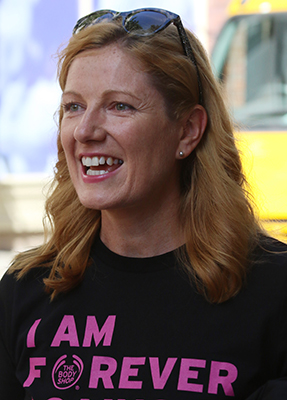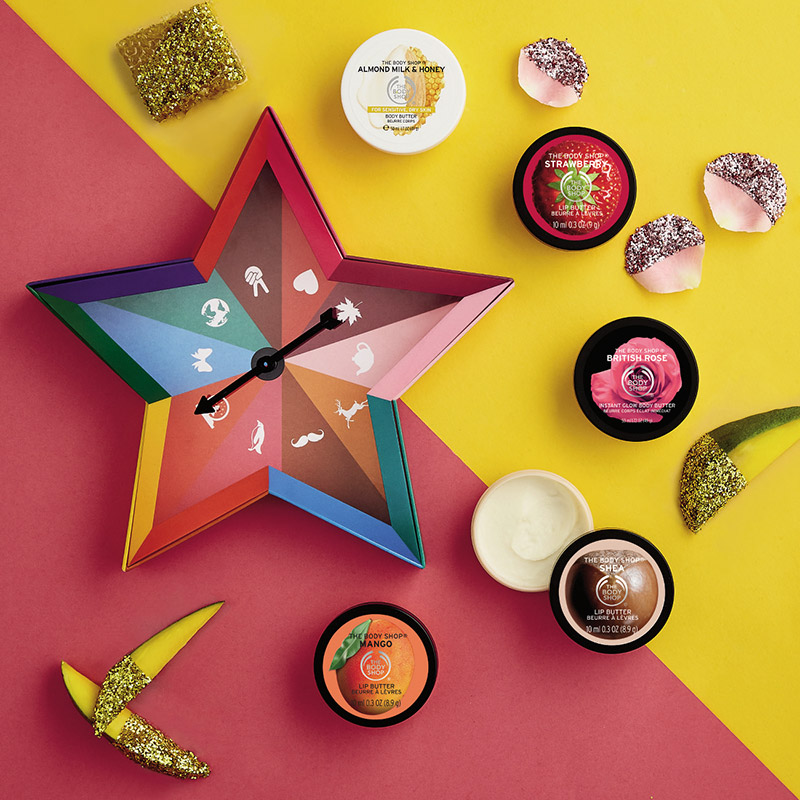
Jessie Macneil-Brown
Today, more beauty brands can identify with activism than ever before. But as the line between 'activist' and 'business' becomes increasingly blurred, how can brands ensure that they are not selling themselves short by giving too much?
Jessie Macneil-Brown, is the Head of Campaigns for The Body Shop International . Here, she talks to Cosmetics Business about the beauty industry campaigns that have inspired her and why standing up for your brand's values is a step towards 'activism'.
How long has The Body Shop been involved with activist causes?
Since the very early days! Our founder Anita Roddick pioneered ethical beauty in 1976 when she opened The Body Shop’s first store in Brighton. This was a time when corporate activism – or even corporate social responsibility – was really unknown.
The first major campaign that Anita and The Body Shop launched was Save the Whale in 1986. Working alongside Greenpeace, The Body Shop campaigned against whaling and promoted jojoba oil as a substitute for spermaceti (from whale oil), which was used widely in cosmetic products at the time.
We’ve been proudly campaigning against animal testing, alongside our partner Cruelty Free International (then known as the BUAV), since the 1980s.
Our efforts have made a significant contribution to UK and EU bans, and now we’re taking it global with our latest campaign, Forever Against Animal Testing.
Why is activism important to the brand?
It’s always been our belief that business should be a force for good. As a trusted global brand with a history of activism, we have a strong and unique voice.
We can make real and long-term positive change to the world, and we want to give our customers the opportunity to stand up for issues that they really care about.
Our customers count on us to stand up for what we believe in, and alongside our partners and customers, we know we can make a lasting difference.
More beauty brands are now involved in activism across an array of issues (e.g. political, social etc). What do you think has fuelled this shift?
It could be down to the fact that customers are becoming more conscious of the impact of the products they buy as well as an increased understanding of the effects of climate change and inequalities in society.
As consumers make more conscious decisions, they’re more attracted to brands that are making a positive difference.
I hope it’s also because these customers are also working for brands and beginning to realise that through their businesses they make significant positive impacts for our world.
For example, I was really inspired last year when several US brands publically announced they would hire refugees, as a response to President Trump’s refugee policy.
Sometimes doing the 'right thing' can mean greater costs for the brand involved. Can you give an example of when this was the case for The Body Shop, and how the brand overcame this to still make a profit as a business?
The Body Shop is proud of its Community Trade programme, through which we source 23 natural ingredients direct from supplier communities all over the world.
Our partnerships and sustained trade with these expert producers supports economically vulnerable communities.
Sometimes the ingredient may be more expensive, but the programme is a part of our DNA and integral to our brand and we don’t pass along the costs to our customers.
We also benefit by getting really high-quality, traceable and sustainable ingredients as a result.
What advice would you give to a beauty brand thinking about campaigning for a cause it is passionate about?
Just do it! Find an issue that your business and customers are truly passionate about, make sure it fits well with your brand values and, most importantly, that what you plan to do will make a real difference. Then get your customers, colleagues, suppliers and networks involved!
What was one of the most memorable campaigns/projects that The Body Shop has been involved in?
The Body Shop has had some really incredible campaigns over its lifetime.
Our Against Animal Testing campaigns were really memorable as we were the first brand to speak out on the issue and with our long term partner Cruelty Free International, we helped influence bans in the UK and then the EU.
For me personally, our Stop Sex Trafficking campaign (2009-2012) is my most memorable. We collected over seven million signatures and changed legislation in 20 countries. At the time, it was the biggest petition ever brought to the UN.
Away from The Body Shop, what other activist campaign/project led by another beauty brand has stood out to you over the past year and why?
I absolutely love the Scottish fragrance brand Reek Perfume. Their fragrances are cruelty-free and hand-made but most importantly they’re an activist brand championing equality and women’s rights.
I was really inspired by their decision to take a stance on repealing Ireland’s 8th amendment which currently criminalises abortion.
Do you think being involved in activism is right for every brand? If yes/no, why?
Every brand has the ability, and perhaps even the responsibility, to stand up for their values and what they’re passionate about. Maybe that’s not called ‘activism’ but I think being transparent about what you stand for as a brand helps you create trust.
You don’t have to do it on the shop floor or even be particularly vocal about it - you can find subtle ways to be an activist behind the scenes.
I’m fascinated and energised by the growing corporate activism movement.
If a beauty brand should get involved in one activist cause, what would you suggest it is?
Animal testing in cosmetics. It’s a still a prevalent problem within the cosmetics industry, customers really care about it and if every company decided to be against animal testing for good, the practice would end. Then everyone could confidently shop cruelty free!


